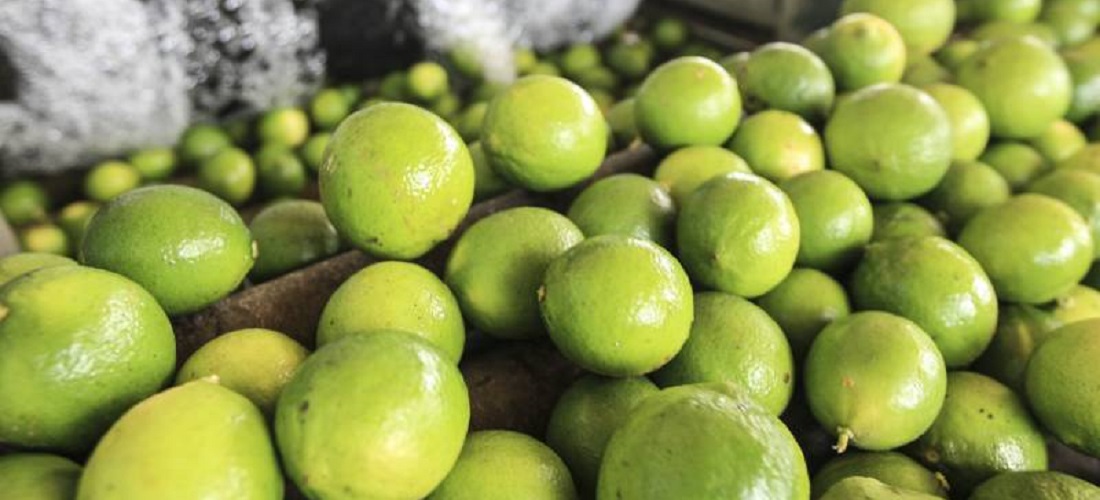
Gov’t confirms EU may suspend lime imports from Brazil
Jul, 06, 2022 Posted by Gabriel MalheirosWeek 202227
The Ministry of Agriculture (Mapa) confirmed that exports of Persian lime from Brazil to the European Union are at risk of being suspended after shipments of the fruit contaminated with citrus canker were identified by European authorities. According to the ministry, the EU notified the Brazilian government of 32 shipments out of the 42 made this year. Attachés of the Brazilian government identified the other ten shipments. The lemon was exported by 15 São Paulo companies whose names were not disclosed.
Carlos Goulart, director of the Department of Plant Health and Agricultural Inputs of the Ministry of Agriculture, informed that the identification of canker among cargo exported to the EU is not unprecedented, but the quantity is. Last year, there were 17 cases. The problem had already occurred in 2017, which prompted a European audit of the Brazilian inspection system. “Since then, we’ve had some good years, but the problem recurred last year, and we reached a record this year.”
According to him, the number of detections that occurred since the beginning of the year gives the European Union, using the rigor of international regulations, to ban the entry of lime shipments from Brazil. He pointed out, however, that Brazil was given a deadline to adopt preemptive measures and present an action plan to avoid shipping infected cargoes. This deadline expires in about two weeks.
Faced with the notification, he said that the ministry called the Animal and Plant Defense Coordination of São Paulo, responsible for registering the exporters’ production units and meatpacking plants to verify inspection procedures that examine whether there were frauds in the investigation process and issue the due fines and disqualify the companies.
According to Goulart, the investigation to provide the answers to the European agency is still ongoing. Still, Mapa has intensified the inspection and is also seeking explanations from the private sector, which is the most interested and affected party, as there is no plan B for lemon exports from Brazil.
According to the Brazilian Association of Producers and Exporters of Fruits and Derivatives (Abrafrutas), the EU receives 80% of the lime exported by Brazil, which generated a revenue of US$ 120 million in 2021. The entity informed that it is doing its best to defend the legitimate interests of the Brazilian Persian lime production chain, aiming to “minimize the impacts of the harsh, but necessary measures taken by regulatory bodies.”
“An eventual ban will flood the national lemon market, which already has a very low price. We are talking about a severe economic loss for exporters and national producers who are going through a turbulent phase,” said Goulart.
Mapa informed it identified other contaminated cargoes still in Brazil and suspended since June 30 all companies involved in the export of lemon with citrus canker and will detect if there was negligence, fraud, or if the commercial value of the cargo made inspections lose rigor since it is done by sampling. In addition, the farms where the fruit with the disease originated are also being suspended.
According to Goulart, citrus canker is a severe problem for agriculture, so much so that it is not only a requirement of the European Union but has also been regulated in Brazil by a risk mitigation system since 2015. “This regulation brings a great degree of seriousness to the process. We shouldn’t have seen many such detections of this pest.”
Mapa and CDA also agreed to considerably increase checks in export analysis, which will delay export exit. “The regular inspection procedure takes 24 to 48 hours for release, and now we will take as long as required to ensure that we do not ship fruits with citrus canker,” underlines Goulart, noting that canker is a pest that citrus growers are well familiar with and know how to treat.
In circumstances when the cargo is denied, the typical approach is to destroy it or re-export it to another nation that does not have the same restrictions. According to Goulart, re-export is the most common route, although finding purchasers for such a large number is tricky. According to Eduardo Brando, executive director of Abrafrutas, most fruits no longer have the quality to go to other countries.
In addition to losing contracts with importers and paying fines for non-compliance, the exporter of contaminated cargo is limited to operating within the domestic market, where the price is much lower. According to Brandão, most canker cases in Brazil are concentrated in the region of Catanduva (SP).
Source: Globo Rural
To read the full original article, please go to: https://globorural.globo.com/Noticias/Agricultura/Hortifruti/noticia/2022/07/governo-confirma-risco-de-suspensao-de-importacao-de-limao-pela-uniao-europeia.html
-
Ports and Terminals
Mar, 25, 2021
0
Increased exports of wheat flour and oat bran via Tecon Rio Grande
-
Shipping
Jun, 15, 2020
0
Maersk to change their mooring ropes over the course of five years
-
Shipping
Dec, 30, 2022
0
Ocean freight goes from peak to trough in 2022
-
Shipping
Dec, 27, 2024
0
China launches probe into beef imports as farmers struggle

